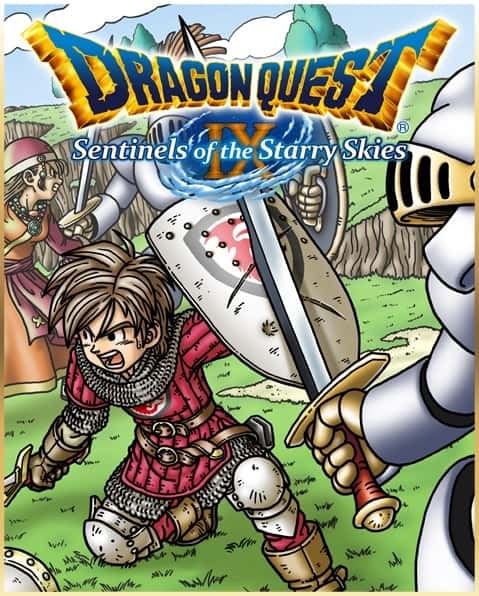Dragon Quest

Plot Synopsis
In Dragon Quest IX: Sentinels of the Starry Skies, players begin their adventure as a city guardian who is sent to retrieve a sacred tree's fruits, which have the power to grant wishes. Players travel the world, conquer fearsome monsters and unravel an epic storyline.
Source - IGN
Ruskin
Rigidity
“For I mean, not merely stable, but active rigidity; the peculiar energy which gives tension to movement, and stiffness to resistance, which makes the fiercest lightning forked rather than curved, and the stoutest oak-branch angular rather than bending, and is as much seen in the quivering of the lance as the glittering of the icicle” (LXXIII).
The makers of the game actively retain the structure of the very first game in the series. Although the story progresses and forks off into spin off games and the like, all the games in the series revolve around the same structure. The algorithm that determines the experience gained and combat stats of each monster has even stayed the same, aside from very few additions here and there. This is all because the original game was so good, almost too good for it’s time. The millions of fans of the series, mainly Japanese, follow the series for this reason. They know what to expect, and still enjoy the game in each succession.

Eco
Pretext
“There is no real interest in the historical background; the middle ages are taken as a sort of mythological stage on which to place contemporary characters” (p. 68)
These games have no real root in actual history, but instead they use the period to justify character types they use, in addition to common tropes like magic and dragons. Instead of creating some new time period, it makes sense to use the Middle Ages. This also explains the religous aspect of it, where all the characters in the game are willing to accept a religous answer to everything, all their problems and the curious situations in the game.

Tradition
“... these Middle Ages keep going under the banner of the mystical weddings of the micro- with the macrocosm, and as a result they convince their adepts that everything is the same as anything else and that the whole world is born to convey, in any of its aspects and events, the same Message” (p. 71)
You have to talk to priests to save, you are essentially a fallen angel trying to get your place back in “heaven” by defeating a great evil.

Emery
Tropes
This game has many tropes. It would be futile to list them all, especially because they aren't the strongest argument for the game's obvious medievalist roots.
- Dragons
- Kinghts
- Kings
